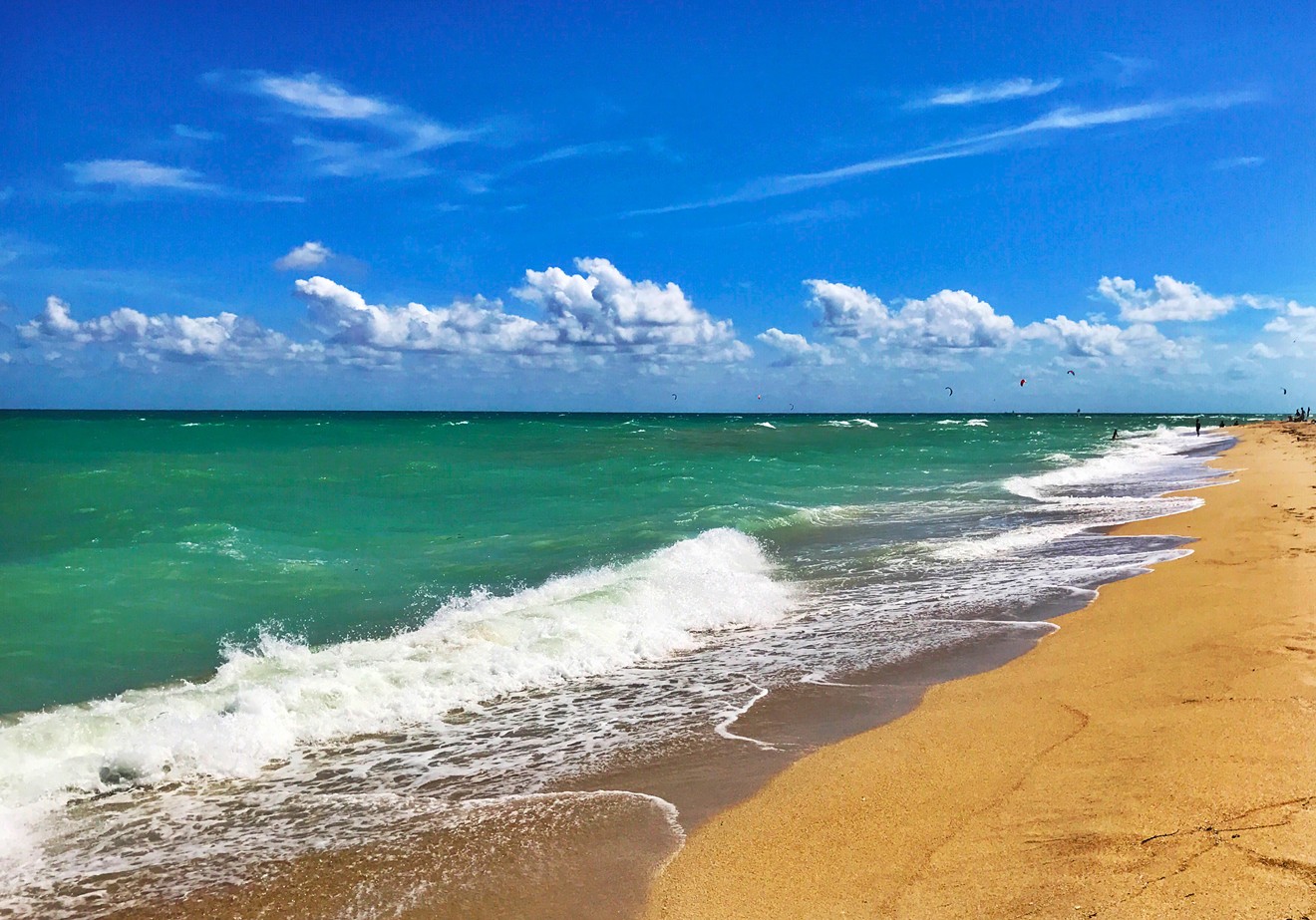Statistics say otherwise. In reality, 563,000 adults, or 3.5 percent of the Florida population, had serious thoughts of suicide in the past year, according to the U.S. Department of Health and Human Services. In comparison, a wintry state like New York had 591,000 adults who grappled with suicidality, accounting for 3.9 percent of its residents.
You can still struggle with your mental health while living in a place like Miami, and we don’t talk about it enough here.
Duncan Macmillan’s play Every Brilliant Thing opened at the Adrienne Arsht Center last week. In the play, a young boy’s mother attempts suicide; in response, he begins a list of brilliant things worth living for to cheer her up and prevent a relapse. He ends up continuing the project through adulthood. The list ranges from childhood favorites like “ice cream” to more acquired pleasures like “the smell of old books.” The playwright said in an interview with the Guardian in 2014, the year the play premiered in the U.K., “I didn’t see anyone discussing suicidal depression in a useful or interesting or accurate way.” He was right: This topic is difficult to approach, even for people who have gone through it.
“Sunlight” is number 999 on the boy’s list, and Miami has plenty of it. “Sunlight is filled with vitamin D, which has been found to prevent depression,” says Daniel Jimenez, Ph.D., an assistant professor of psychiatry and behavioral sciences at the University of Miami’s Miller School of Medicine. “The problem is that the heat and humidity can be so oppressive that people are forced indoors, negating the positive benefits of the sunshine,” he adds.
A sunny climate doesn't preclude depressive episodes. A consistently gorgeous forecast may even make it difficult to admit you need help. When you think of South Florida, you imagine glittering waters, azure skies, and raspberry-infused sunsets. You wonder, Who could ever experience the crushing darkness and lethargy of depression here? Visitors and locals alike buy into the expectation of a tropical paradise. If your mental health is failing, the thinking goes, it shouldn’t be happening in a place like Florida. And yet it is, for hundreds of thousands.
Even after you acknowledge you need help, it can be difficult to find it. Psychiatrist Stephen McLeod-Bryant, M.D., a clinical associate professor of psychiatry and behavioral sciences at UM's Miller School of Medicine, says, “Florida, in general, has a very fragmented system of mental healthcare with
Mental health services are in high demand, but inpatient units at local hospitals are understaffed and underfunded. It can take months to get an appointment with an outpatient psychiatrist or psychotherapist, and only a handful accepts insurance.
“Organizations such as the National Alliance on Mental Illness, the South Florida Behavioral Health Network, and the University of Miami are attempting to fill in the gaps with mental health professionals and services,” says McLeod-Bryant. But it’s not enough. When you finally get past the stigma, the resources aren’t readily available when you need them.
Near the end of Every Brilliant Thing, the narrator says something important: “If you live a full life and you get to the end of it without ever once feeling crushingly depressed, then you probably haven’t been paying attention.” This rings true in Miami: Behind the facade of a carefree tropical paradise, many are wrestling with mental illness.
Like the character in the play discovers, a list of brilliant things ultimately can’t prevent suicide or depression. But we can list things that may help Miamians struggling with their mental health: compassion and empathy, public initiatives to combat the stigma of mental illness, greater accessibility to mental health services, and readily available intervention tools. This short list could go a long way toward saving lives in the Magic City.
Every Brilliant Thing. Through Sunday, March 3, at the Adrienne Arsht Center, 1300 Biscayne Blvd., Miami; arshtcenter.org. Tickets cost $50.












